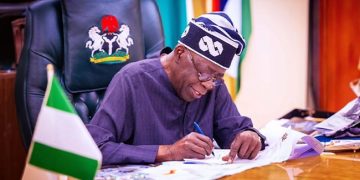From Dreamers to Disruptors: How Africa’s Youth Can Lead the World in AI—Responsibly

By Dr. Michael Omoruyi | iNewsAfrica
In Lagos, Nairobi, Accra, and beyond, the hum of innovation is no longer just the echo of imported technology—it is the heartbeat of African creativity. Across the continent, teenagers are designing AI-powered concepts, university students are building health-tech apps, and young entrepreneurs are tackling agriculture, fintech, and climate resilience with algorithms and code. The potential is undeniable. The question is—will we nurture it responsibly or watch it wither under hype, neglect, and misplaced priorities?
The Promise of Africa’s Young Tech Minds
Africa holds the youngest population on the planet—over 60% under the age of 25. This is not just a statistic; it is a strategic advantage in the age of artificial intelligence. While the rest of the world debates AI ethics, Africa’s youth are experimenting with applying it to solve pressing issues: diagnosing diseases, mapping crop yields, and streamlining public services.
The creative energy is raw, vibrant, and contagious. But without structure, it risks becoming a spectacle—fueled by viral videos and exaggerated claims rather than real, scalable solutions.
From Raw Talent to Refined Innovation
To move from imagination to implementation, Africa must:
Rewire education to include AI literacy, coding, and ethical technology from primary school.
Expand access to maker spaces, affordable AI tools, and cloud computing, especially in rural areas.
Link youth to mentors—African professionals at home and in the diaspora—who can provide technical guidance and reality checks.
Promote ethical storytelling, making clear when a product is a concept, prototype, or market-ready device.
Invest in startup incubation with funding, business training, and intellectual property protection.
Guarding Against the Dangers of Hype
In recent months, stories of “world-first AI devices” from African teenagers have gone viral—some later revealed as concept demonstrations rather than functioning products. This doesn’t diminish the brilliance behind the idea; rather, it underscores the need for critical thinking, transparency, and fact-based reporting. A strong ecosystem doesn’t just celebrate innovation—it also teaches integrity in innovation.
Why Responsible Nurturing Matters
Handled well, Africa’s youth can leapfrog into global leadership in AI. Mishandled, we risk eroding trust, inviting exploitation, and stunting real progress. AI is not just another industry; it’s the architecture of the future economy. If we equip our young people with skills, ethics, and opportunity, they will not only compete globally—they will shape the standards by which the world operates.
Namibia recently made history with women leading all three top government positions. That kind of bold leadership is a reminder: the world notices when Africa leads from the front. In AI and tech, we have the same opportunity—if we choose to back our young innovators not just with applause, but with access, mentorship, and accountability.
Because the real victory will not be in creating the next viral sensation—it will be in creating the next generation of African tech giants whose innovations stand the test of time.
About the Author
Dr. Michael O. Omoruyi is a technologist, educator, and the author of “From Grit to Grace: A Memoir of Roots, Resilience, and Reinvention.” He currently serves as Director of Diaspora Affairs for the LPPMC and advocates for youth inclusion and African innovation

Dr. Michael Omoruyi is a distinguished information technology, generative AI, and media professional with a robust background in academia and media consultancy. He currently serves as the Publishing Director at iNewsAfrica, an online news platform dedicated to delivering eyewitness news from Africa to a global audience. In addition to his role at iNewsAfrica, Dr. Omoruyi has an extensive academic career, having served as a professor at the College of New Rochelle in New York. His commitment to education is further exemplified by his position as President of the Polytechnic Computer Training Center, where he has been instrumental in advancing computer literacy and education.
South Africa’s Clinic Blockades: When Fear Replaces Ubuntu
November 21, 2025
Leave a reply Cancel reply
Popular Categories
- Mauritania 1
- Nepal 1
- Culture 1
- Trade 1
- Ivory Coast 1
- ICJ 1
- Somali 1
- Europe 1
- United Nations 1
- Israel 1
- Thailand 1
- Zimbabwe 1
- West Africa 1
- Brazil 1
- Finland 1
- Colombia 1
- Travel 1
- Automobile 1
- Myanmar 1
- Entertainment 1
- Mozambique 1
- Morocco 1
- Space 1
- Terrorism 1
- Tunisia 1
- Book & Arts Spotlight 1
- Vatican City 1
- ECCAS 1
- senegal 1
- UNDP 1
- The Hague 1
- Vietnam 1
- Gambia 1
- Global Diplomacy 1
- Wildlife 1
- Celebration 1
- Interview 1
- BRICS 1
- Democracy 1
- Defense 1
- Gabon 1
- Pakistan 1
- Togo 1
- Weather 1
- Algeria 2
- Church 2
- Economy 2
- Rome 2
- Energy 2
- New York City 2
- Science 2
- Guinea-Bissau 2
- Somalia 2
- Zambia 2
- Angola 2
- World Bank 2
- Middle East 2
- Benin Republic 2
- Cameroon 2
- London 2
- Education 2
- Sierra Leone 2
- Business 2
- Chad 2
- Caribbean 2
- Ukraine 2
- Ukraine 2
- Haiti 2
- Guinea 2
- India 3
- Russia 3
- South Sudan 3
- Uganda 3
- Crime 3
- Namibia 3
- Music 3
- Ethiopia 3
- Transportation 3
- Rwanda 3
- France 3
- Lesotho 3
- Aviation 3
- Congo 3
- Health 4
- Tanzania 4
- Liberia 4
- Libya 5
- ECOWAS 5
- Egypt 5
- UN 5
- UK 6
- Mali 7
- China 7
- Niger 8
- Editorial 8
- Sudan 9
- Burkina Faso 10
- Politics 11
- Tech 12
- Ghana 13
- Technology and Business 13
- DR Congo 15
- World 15
- Sports 17
- Kenya 17
- Opinion 18
- People 23
- South Africa 29
- US 47
- OP-ED 62
- Africa 85
- Nigeria 158

Email: [email protected]










